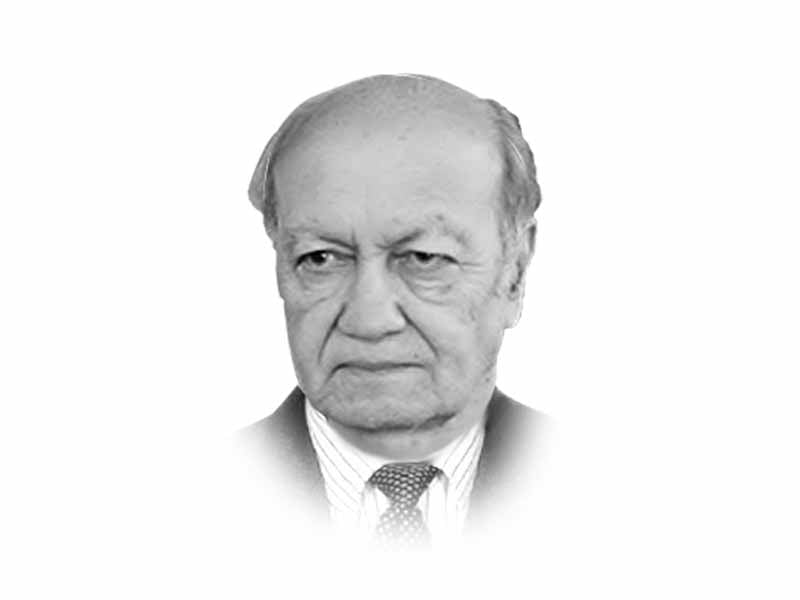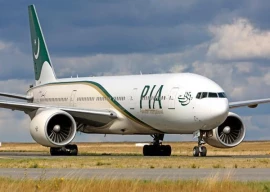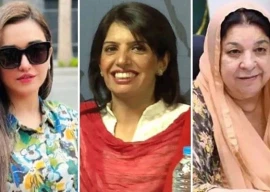
The split in the combined major opposition parties with PPP taking a different position to PML-N and JUI-F, may be considered a setback for the Pakistan Democratic Movement (PDM) in a narrow sense but certainly not for democracy. The PPP has been in favour of putting up a strong opposition to the PTI government in the parliament with viable alternative policies and programmes rather than resorting to agitation on the streets. This certainly is a far better option and a more mature response. Street or agitational politics at best may succeed in paralysing the government but not necessarily ousting it and would not serve the larger aim of strengthening our fragile democracy. Even if agitational politics were to succeed in ousting the PTI government the trend set in would make the incoming government equally vulnerable to be the victim of similar tactics. This is not mere conjecture is but based on hard lessons drawn from our rather turbulent political past. Every time political parties took to the street the military and the bureaucracy gained strength and the reputation of politicians in the eyes of the public took a nose dive, causing a great setback for democracy. In a few cases, politically ambitious generals like Zia and Musharraf took advantage of the disillusioned public and captured power ousting the elected governments.
This is not to suggest that the PTI government’s performance meets the expectations of the people. Even many of its ardent supporters are disillusioned and hoping that the remaining two years would be somewhat better. If the slide in performance continues people would clearly favour the PML-N in the next elections and PPP could marginally improve its position in the parliament.
The opposition’s stance that the present PTI government is an imposed government and enjoys the support of the army is rather ironic and hypocritical. Invariably all the major political parties at one time or the other or on several occasions have solicited the support of the military leadership to realise their political ambitions. This is not to affirm that it was a practice that needs to be tolerated in the future.
Moreover, invariably, after every election in Pakistan the losers have cried foul. The influence of how the army leadership of the time viewed different political parties also mattered. Hopefully, drawing lessons from our political history, state institutions realise the merit and utmost need for strictly adhering to the Constitution. Strengthening the election commission and implicit adherence to constitutional norms by all political parties and state institutions is the only way forward to strengthen democracy.
The re-polling in the Daska constituency should lead to a serious reflection and reappraisal of the conduct of elections in Pakistan. So that the blame game and confusion about the credibility of the winner is largely removed. If most of the other democracies are managing their elections with far less scepticism and fuss then there is no reason why we cannot. The meddling and corruption during the Daska election laid bare the hollow claims of fidelity and uprightness of the government.
The opposition leadership has been taunting Prime Minister Imran Khan as being selected. But so are most of the present leaders of other parties. The dominance of hereditary politics and assumption of leadership on that basis is essentially a process that is closer to selection than through fair party elections. In mature democracies too there are innumerable examples of power passing from father to son or to close relatives like the Bush or Kennedy families, but that is strictly through more open and credible party elections. The young leadership of our major parties should pursue a similar course. In here, the elections for these positions presumably does take place but these are more of an eye wash. Furthermore, the young heirs by being jettisoned into top leadership position without any experience at the grassroot level would always remain disadvantaged.
Leadership cannot be imported it has to be nurtured from within the political parties and in institutions. We have to rely on what we have. When military regimes tried to bring eminent and successful Pakistani expatriates in high positions as prime ministers or in finance, it was met with considerable resistance and did not succeed.
The government’s emphasis on economy is fine but unless its politics and that of the main opposition parties is right the country will keep going down. In any system of governance democratic or socialist as in South Korea or China, countries have made significant economic progress only when there was political stability and a sense of purpose in the nation. Similarly, sound economic conditions generally promote and sustain political stability and the two are mutually reinforcing. Our political leadership by creating a semi chaotic environment is deliberately ignoring this basic premise which reflects on their lopsided priorities as though people’s interest is secondary. Acute polarisation between the government and opposition and within opposition parties is taking its toll making people the main sufferers. The war of words is drowning out what the majority of the ordinary people are asking for — "roti, kapra, makaan (bread, clothing and shelter)”. Besides, our country is in the midst of the third wave of the pandemic. Deep divisions and mistrust in our political system threatens the economic recovery to which the political leadership cannot remain oblivious. It is time for reflection and action.
Good governance, interest in legislation and parliamentary affairs and formulation and proper oversight of defense, foreign and economic policies are key ingredients of moving the country forward. Merely denouncing corruption of opponents can only go that far. Instead, there has to be a shift to a more institutionalised approach in dealing with it. Improving functioning of state institutions will be the best deterrent against corruption and other malpractices. It is doubtful if sufficient attention is being given to it.
There is sufficient talent and experience among our political class and in state institutions that kindles hope. But our confrontational political culture and our reluctance to work as a team have been principal impediments to national progress.












COMMENTS
Comments are moderated and generally will be posted if they are on-topic and not abusive.
For more information, please see our Comments FAQ